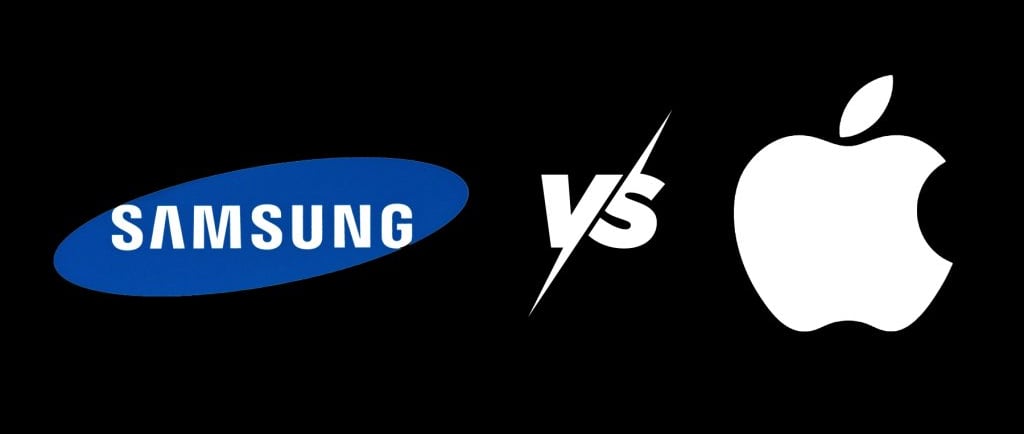items chosen one by one so you have the best option and save money on amazon (Links in articles)
Apple vs Samsung: Which AI Is Smarter in 2025?
The AI Race Is On In 2025, artificial intelligence is no longer a buzzword—it's the core of every smart device. Both Apple and Samsung, two of the world’s tech giants, have fully embraced AI as the next battleground for innovation. From personalized recommendations to real-time language translation and advanced camera enhancements, AI is transforming the way we interact with our smartphones, wearables, and even home ecosystems. But as both companies invest billions into artificial intelligence, the real question is: Which brand has the smarter AI in 2025—Apple or Samsung? In this article, we break down the key differences between Apple Intelligence and Samsung Galaxy AI, comparing their performance, integration, privacy approach, and real-world usefulness. Whether you're a loyal iPhone user or a dedicated Galaxy fan, this head-to-head showdown will help you understand who’s really leading the AI race.
5/14/20252 min leer


1. AI Assistants: Siri+ vs Galaxy AI
Apple has officially upgraded Siri into Siri+, a smarter, context-aware assistant that uses on-device machine learning to understand habits, preferences, and even emotions. Meanwhile, Samsung has launched Galaxy AI, integrated into the Galaxy S24 series and beyond, with a focus on real-time productivity and device-to-device intelligence.
Siri+ Highlights:
Deep integration with iOS 18 and Apple services
Can summarize emails, messages, and documents
Understands conversational context
Works offline for most tasks thanks to Apple Silicon chips
Galaxy AI Highlights:
AI Live Translate: real-time voice and text translations during phone calls
Note Assist: auto-summarization, formatting, and task suggestions
Circle to Search (in partnership with Google AI)
Smart call screening and personalization
Verdict: Samsung’s Galaxy AI feels more practical and powerful in day-to-day usage, especially with real-time translation and cross-app intelligence. Siri+ is more refined and privacy-first, but still slightly behind in flexibility.
2. On-Device Intelligence and Privacy
Apple continues its commitment to on-device AI processing, which boosts both performance and privacy. Most tasks run directly on the iPhone or MacBook using the M3 or A18 chips, without sending data to external servers.
Samsung, while also improving local AI, often relies on cloud-based processing or partnerships with Google Cloud AI. Some tasks—like Live Translate—require a stable internet connection.
Apple:
AI runs locally with minimal data sharing
Privacy-first by default
Neural Engine optimized for real-time, offline processing
Samsung:
Mix of on-device and cloud AI
Google AI collaboration enhances features
More flexible, but slightly more data exposure
Verdict: If privacy is a top priority, Apple leads with its secure AI architecture. Samsung wins on versatility, but Apple maintains a privacy advantage.
3. AI in Cameras: Computational Photography
Both brands are using AI to power computational photography—but in different ways.
Samsung Galaxy AI:
Scene optimization using AI
Nightography: advanced low-light enhancements
AI Zoom: predicts and recreates detail using generative AI
Object eraser, remaster, and portrait effects with one tap
Apple Intelligence:
Smart HDR and Deep Fusion
AI-based subject tracking in video
Face and pet recognition
Clean, natural enhancements (less aggressive than Samsung)
Verdict: Samsung wins for creative flexibility and AI features in photography. Apple, however, offers more realistic and balanced results that appeal to pro users.
4. Ecosystem Integration and Automation
One of AI’s greatest strengths is automating tasks across multiple devices—and here’s where Apple truly shines.
Apple:
Siri+ works across iPhone, Mac, iPad, and Apple Watch
Shortcuts app automates entire workflows (e.g., turning off lights, opening apps, sending messages)
AirPods Pro offer real-time AI-powered noise cancellation
Seamless syncing with Apple Notes, Mail, and Calendar
Samsung:
Galaxy AI integrates with SmartThings (smart home hub)
Notes, Calendar, and Bixby routines get smart suggestions
Less cohesive automation across devices
Stronger smart TV and home appliance integration
Verdict: For cross-device productivity and automation, Apple’s ecosystem delivers a smoother, smarter experience. Samsung does better in the smart home space.
5. Real-World Use Cases and User Feedback
Thousands of reviews on Amazon, Reddit, and tech forums reveal a common trend:
Apple users love the smooth, intelligent suggestions and privacy.
Samsung users rave about practical AI tools like Live Translate and Note Assist.
Tech enthusiasts enjoy Samsung’s openness to third-party AI tools, while Apple stays tightly curated.
If you want a hands-off AI experience that protects your data, Apple is the winner.
If you prefer a dynamic, cloud-powered assistant that works in real time and across apps, Samsung pulls ahead.
Final Verdict: Which AI Is Smarter in 2025?
It depends on what you value most:
FeatureWinnerVoice assistantSamsungPrivacy & on-device AIApplePhotography AISamsungEcosystem integrationAppleReal-time translationSamsungCross-device productivityAppleAI innovation paceSamsung
In 2025, Samsung Galaxy AI leads in practical innovation, productivity, and creativity.
Apple Intelligence, on the other hand, dominates in privacy, reliability, and seamless ecosystem integration.
If you want a smarter smartphone for work, travel, or creativity, Samsung is the bold choice.
If you need secure, private, and well-integrated AI across all your devices, Apple still leads the way.